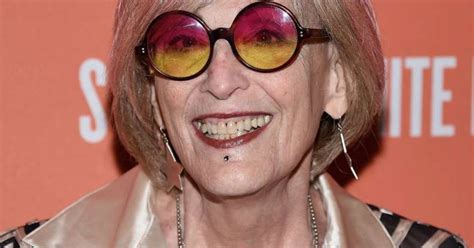
Johnny Carson’s lavish lifestyle, including the secrets of his custom-built mega-yacht and the personal struggles he faced despite his public persona, are revealed in a new biography, “Johnny Carson,” authored by Henry Bushkin, Carson’s former lawyer and confidant. The book offers an inside look at the late-night legend’s world, exploring his financial excesses, tumultuous relationships, and the insecurities that plagued him even at the height of his career.
The biography, as reported by Yahoo Entertainment, paints a portrait of Carson beyond the amiable television host known to millions. Bushkin’s account details the enormous expense of Carson’s yacht, a symbol of his wealth and status, while simultaneously highlighting the emotional complexities and private battles that Carson fought away from the cameras. The book further exposes the vulnerabilities beneath the polished surface of a man many considered to be the king of late-night television.
One of the most striking revelations involves Carson’s extravagant spending habits, particularly concerning the construction and maintenance of his yacht. Bushkin describes the vessel as a significant financial burden, noting the exorbitant costs associated with its upkeep. “The boat,” Bushkin writes, “was a constant drain, a never-ending source of aggravation and expense.” This detail underscores the dichotomy between Carson’s carefully constructed public image and the private realities of managing his immense wealth.
Beyond the financial aspects, the biography delves into Carson’s personal relationships, including his marriages and his interactions with those closest to him. Bushkin provides insights into the challenges Carson faced in maintaining stable relationships, suggesting that his demanding career and personal insecurities often created friction. The book doesn’t shy away from presenting a candid and, at times, unflattering portrayal of Carson’s behavior, revealing instances of jealousy, anger, and emotional withdrawal.
The biography also addresses Carson’s professional life, offering glimpses into the behind-the-scenes dynamics of “The Tonight Show” and his relationships with colleagues and competitors. Bushkin’s perspective sheds light on the pressures Carson faced as the host of a nightly television program and the strategies he employed to maintain his position at the top of the entertainment industry.
The book is drawing attention not only for its revelations about Carson’s wealth and personal life but also for its portrayal of the man behind the persona. Bushkin’s account suggests that Carson, despite his success, was deeply insecure and constantly seeking validation. This vulnerability humanizes Carson, offering a more nuanced understanding of his life and career.
“Johnny Carson” by Henry Bushkin promises to be a controversial and compelling read, offering a fresh perspective on one of television’s most iconic figures. By revealing the secrets of Carson’s mega-yacht and delving into his personal struggles, the biography provides a more complete and complex portrait of a man who continues to fascinate audiences decades after his retirement. The book also raises questions about the price of fame and the challenges of maintaining personal happiness in the face of immense public scrutiny.
The financial details surrounding Carson’s yacht are particularly noteworthy. According to Bushkin, the cost of building and maintaining the vessel was staggering. This expenditure reflects Carson’s immense wealth but also suggests a tendency towards extravagance and a desire to project an image of success. The yacht, in many ways, became a symbol of Carson’s status and a tangible representation of his achievements.
However, the biography also suggests that the yacht was a source of stress for Carson. The constant costs and logistical challenges associated with its upkeep weighed on him, adding to the pressures of his demanding career. This detail highlights the complexities of wealth and the potential for material possessions to become burdens rather than sources of joy.
Bushkin’s account further reveals that Carson often used his wealth to shield himself from emotional vulnerability. The yacht, for example, provided a private space where he could escape the pressures of fame and the demands of his personal life. However, this isolation also contributed to his emotional struggles, preventing him from forming deeper connections with others.
The biography’s exploration of Carson’s relationships is equally revealing. Bushkin suggests that Carson struggled to maintain stable and fulfilling relationships due to his insecurities and his demanding career. His marriages were often tumultuous, and his interactions with friends and colleagues were sometimes strained.
One of the key themes of the biography is the contrast between Carson’s public persona and his private life. On television, he was the charming and witty host who effortlessly entertained millions. However, behind the scenes, he was a complex and often troubled individual struggling with insecurities and personal challenges.
Bushkin’s account offers a glimpse into the strategies Carson employed to maintain his position at the top of the entertainment industry. He was a meticulous and demanding performer who insisted on perfection in every aspect of his show. He also carefully cultivated his public image, presenting himself as a relatable and likeable figure.
However, Bushkin also reveals that Carson was fiercely competitive and often insecure about his position. He was constantly aware of the threat posed by rival entertainers and was willing to go to great lengths to protect his status. This competitive drive contributed to his success but also added to his stress and anxiety.
The biography also addresses the impact of Carson’s fame on his personal life. The constant attention and scrutiny took a toll on him, making it difficult for him to maintain privacy and form genuine connections with others. He often felt isolated and misunderstood, despite being surrounded by admirers and colleagues.
Bushkin’s account suggests that Carson’s wealth and fame ultimately contributed to his unhappiness. While he enjoyed the material comforts and recognition that came with success, he also struggled with the pressures and challenges that accompanied it. The biography offers a cautionary tale about the price of fame and the importance of maintaining personal balance in the face of immense public scrutiny.
The biography is likely to spark debate and discussion about Carson’s legacy. Some readers may be critical of Bushkin’s decision to reveal intimate details about Carson’s life, while others may appreciate his candid and honest portrayal. Regardless of individual opinions, the biography promises to offer a fresh and insightful perspective on one of television’s most iconic figures.
The book also raises broader questions about the nature of fame, wealth, and personal happiness. It suggests that external success does not necessarily equate to inner peace and that even the most admired figures can struggle with insecurities and personal challenges. Bushkin’s revelations create a more accessible view into the legendary figure, rather than simply a one-dimensional celebrity persona.
The biography emphasizes Carson’s meticulous nature and unwavering dedication to his craft. He was known for his sharp wit, impeccable timing, and ability to connect with audiences on a personal level. However, Bushkin reveals that this effortless charm was the result of countless hours of preparation and rehearsal. Carson was a perfectionist who demanded excellence from himself and those around him.
This dedication to his craft extended beyond the television studio. Carson was constantly seeking new material and refining his comedic skills. He read widely, attended comedy clubs, and sought feedback from his colleagues. He was determined to stay ahead of the curve and maintain his position as the king of late-night television.
The biography also highlights Carson’s generosity and philanthropy. He quietly supported numerous charities and causes, often without seeking public recognition. He was particularly interested in education and the arts, and he provided financial assistance to many aspiring artists and students.
However, Bushkin also reveals that Carson’s generosity was sometimes tempered by his insecurities. He was often reluctant to publicly acknowledge his philanthropic contributions, fearing that it would be perceived as self-serving. He preferred to give anonymously, believing that true generosity should be motivated by a genuine desire to help others, not by a need for recognition.
The book further explores Carson’s relationships with his family. He was devoted to his children and grandchildren, but he often struggled to balance his career with his family responsibilities. His demanding schedule made it difficult for him to attend family events and spend quality time with his loved ones.
Bushkin suggests that Carson regretted not being more present in his children’s lives. He often expressed remorse about missing important milestones and felt guilty about the impact of his career on his family. This regret underscores the challenges of balancing personal and professional life, particularly for those in high-profile careers.
The biography also delves into Carson’s political views. While he generally avoided discussing politics on “The Tonight Show,” he held strong opinions on many issues. He was a moderate Republican who supported fiscal conservatism but also held socially liberal views.
Bushkin reveals that Carson was deeply concerned about the state of American politics and the growing polarization of the country. He believed that politicians should focus on finding common ground and working together to solve problems, rather than engaging in partisan bickering.
The book also addresses Carson’s legacy as a cultural icon. He was one of the most influential figures in television history, shaping the landscape of late-night entertainment and influencing generations of comedians. His wit, charm, and ability to connect with audiences made him a beloved figure in American culture.
Bushkin argues that Carson’s legacy extends beyond his comedic talent. He was also a symbol of American success, embodying the values of hard work, determination, and perseverance. His story is an inspiration to aspiring entertainers and anyone who dreams of achieving their goals.
The biography concludes by reflecting on Carson’s final years. After retiring from “The Tonight Show” in 1992, he lived a quiet and private life, enjoying time with his family and pursuing his hobbies. He remained an avid reader and continued to follow current events.
Bushkin suggests that Carson found peace and contentment in his retirement. He was finally able to escape the pressures of fame and focus on the things that truly mattered to him. He died in 2005 at the age of 79, leaving behind a remarkable legacy that continues to inspire and entertain audiences around the world.
The enduring fascination with Johnny Carson stems from his ability to embody the American dream while simultaneously grappling with the universal struggles of life, love, and loss. Bushkin’s biography offers a comprehensive and nuanced portrait of a complex man, revealing the secrets of his success and the vulnerabilities that made him human. The book is a must-read for anyone interested in television history, celebrity culture, or the life of one of America’s most beloved entertainers.
The narrative avoids glorifying Carson, instead presenting a balanced view. It neither excuses his shortcomings nor diminishes his achievements. The book invites readers to form their own conclusions about Carson’s character and legacy, based on the evidence presented. This approach adds to the credibility and impact of the biography.
Bushkin’s personal connection to Carson gives the biography a unique perspective. As Carson’s lawyer and confidant, Bushkin had unparalleled access to his private life and business dealings. His insider knowledge allows him to provide insights that would be unavailable to other biographers.
However, Bushkin’s close relationship with Carson also raises questions about potential bias. Some critics may argue that Bushkin is too sympathetic to Carson or that he has omitted or downplayed certain aspects of his life to protect his reputation. Readers should be aware of this potential bias and consider it when evaluating the information presented in the biography.
Despite these potential limitations, “Johnny Carson” by Henry Bushkin remains a valuable contribution to the literature on American entertainment history. It offers a compelling and insightful portrait of a complex and fascinating figure, revealing the secrets of his mega-yacht and delving into the personal struggles that shaped his life and career.
The book also sheds light on the inner workings of “The Tonight Show,” providing a behind-the-scenes look at the creation of one of television’s most iconic programs. Bushkin describes the collaborative process that went into producing each show, highlighting the contributions of writers, producers, and other members of the production team.
He also reveals the challenges of maintaining a nightly television program, including the pressure to generate fresh and original content on a consistent basis. Carson and his team worked tirelessly to ensure that each show was entertaining and engaging, often improvising and adapting to unexpected events.
The biography also addresses the impact of Carson’s retirement on the entertainment industry. His departure from “The Tonight Show” marked the end of an era and created a void that has yet to be filled. No subsequent host has been able to match Carson’s longevity, popularity, or cultural influence.
Bushkin argues that Carson’s success was due to a unique combination of talent, hard work, and timing. He was a skilled comedian, a charismatic performer, and a master of improvisation. He also had the good fortune to host “The Tonight Show” during a period of unprecedented growth and popularity for television.
The biography concludes by emphasizing the enduring relevance of Carson’s legacy. His influence can still be seen in the work of contemporary comedians and television hosts. His wit, charm, and ability to connect with audiences continue to resonate with viewers of all ages.
“Johnny Carson” by Henry Bushkin is a comprehensive and insightful biography that offers a fresh perspective on one of television’s most iconic figures. By revealing the secrets of his mega-yacht and delving into his personal struggles, the book provides a more complete and complex portrait of a man who continues to fascinate audiences decades after his retirement. The biography is a valuable resource for anyone interested in television history, celebrity culture, or the life of Johnny Carson.
Frequently Asked Questions (FAQ):
Q1: What are the main revelations in the “Johnny Carson” biography by Henry Bushkin?
A: The biography reveals several key aspects of Johnny Carson’s life. Firstly, it details the extravagant expenses associated with his custom-built mega-yacht and the financial burden it represented. Secondly, it delves into Carson’s tumultuous personal relationships and his struggles with insecurities despite his public success. Finally, the book provides insights into the behind-the-scenes dynamics of “The Tonight Show” and Carson’s competitive nature within the entertainment industry. According to Bushkin’s account, Carson was not always the cheerful television persona that many came to know and admire.
Q2: What does the biography reveal about Johnny Carson’s mega-yacht?
A: The biography highlights the yacht as a symbol of Carson’s wealth but also a significant financial drain. Bushkin describes the exorbitant costs associated with its upkeep, emphasizing that it was a “constant drain, a never-ending source of aggravation and expense.” Furthermore, the yacht served as a private escape for Carson, but also contributed to his emotional isolation. The book portrays the yacht as both a luxury and a burden, symbolizing the complexities of Carson’s wealth.
Q3: How does the biography portray Johnny Carson’s personal life and relationships?
A: The biography portrays Carson as struggling to maintain stable and fulfilling relationships due to his insecurities and demanding career. His marriages were often tumultuous, and his interactions with friends and colleagues were sometimes strained. The book suggests that Carson used his wealth to shield himself from emotional vulnerability, which ultimately contributed to his difficulties in forming deeper connections with others. The portrait is that of a man who despite his professional success, had deep personal struggles.
Q4: What insights does Henry Bushkin provide about “The Tonight Show” and Johnny Carson’s professional life?
A: Bushkin reveals that Carson was a meticulous and demanding performer who insisted on perfection in every aspect of his show. He carefully cultivated his public image but was also fiercely competitive and insecure about his position. The biography sheds light on the pressures Carson faced as the host of a nightly television program and the strategies he employed to maintain his position at the top of the entertainment industry. The book suggests that Carson’s public image was meticulously crafted and maintained.
Q5: What impact did fame have on Johnny Carson, according to the biography?
A: According to the biography, the constant attention and scrutiny took a toll on Carson, making it difficult for him to maintain privacy and form genuine connections with others. He often felt isolated and misunderstood, despite being surrounded by admirers and colleagues. Bushkin’s account suggests that Carson’s wealth and fame ultimately contributed to his unhappiness, offering a cautionary tale about the price of fame and the importance of maintaining personal balance in the face of immense public scrutiny. Carson’s story serves as a stark warning about the challenges of maintaining happiness and normalcy amidst fame and wealth.









